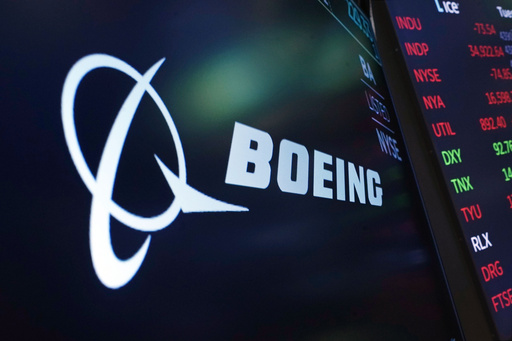BEIJING (AP) — China’s Ministry of Commerce announced sanctions against Boeing and two other defense companies Monday for arms sales to Taiwan, on the day of Taiwan’s presidential inauguration.
The move is the latest in a series of sanctions Beijing has announced in recent years against defense companies for weapons sales to Taiwan, a self-ruled island that China considers as part of its own territory.
China’s Ministry of Commerce placed Boeing’s Defense, Space & Security unit, General Atomics Aeronautical Systems, and General Dynamics Land Systems, on what is called an “unreliable entities” list, forbidding their further investment in China, in addition to travel bans on senior management for the companies.
Lai Ching-te, Taiwan’s new president, has vowed to strengthen Taiwan’s security through imports of advanced fighters and other technology and strengthening its domestic defense industry.
In April, China froze assets of General Atomics Aeronautical Systems and General Dynamics Land Systems held within China.
Corporate filings show General Dynamics operates a half-dozen Gulfstream and jet aviation services operations in China, which remains heavily reliant on foreign aerospace technology even as it attempts to build its own presence in the field.
The company also helps make the Abrams tank, which is being purchased by Taiwan to replace outdated armor intended to deter or resist an invasion from China.
General Atomics produces the Predator and Reaper drones used by the U.S. military., though it is unclear what weapons if any the company sells to Taiwan.
In 2022, China announced sanctions against Ted Colbert, the president and CEO of Boeing Defense, Space and Security. after the company won a $355 million contract to supply Harpoon missiles to Taiwan.
Taiwan has faced increasing military harassment from China’s People Liberation Army, which regularly flies fighter jets and sails warships near the island.
The likely impact of Beijing’s sanctions on businesses such as Boeing is unclear. The United States bars most sales of weapons-related technology to China, but some military contractors also have civilian businesses in aerospace and other industries.



